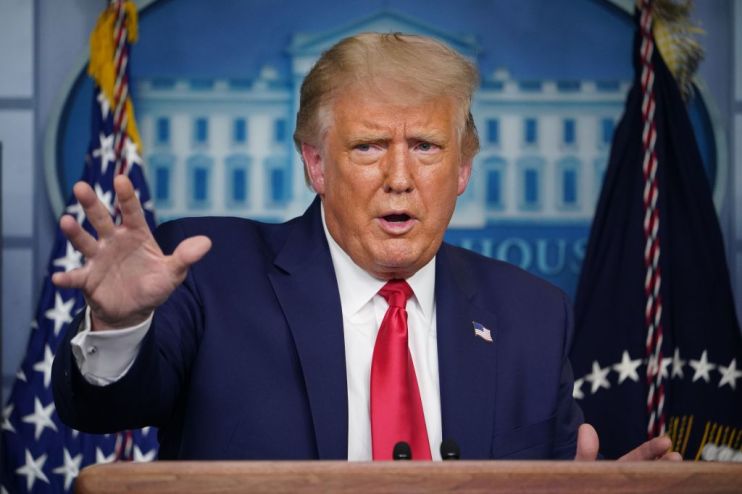Trump wavers on Tiktok deal as Bytedance seeks Chinese approval

US President Donald Trump has said he is “not prepared to sign off” on a plan to offload management of Tiktok’s US operations to Oracle, as parent firm Bytedance admits the deal will require approval from Beijing.
Trump said he will be briefed on the full details of the plan today, which is expected to see Oracle become a “trusted technology partner” of Tiktok while Bytedance retains a majority stake in the business.
Six Republican senators have complained to Trump that the deal does not do enough to assuage security concerns, suggesting that the president could block the proposal.
“Conceptually, I can tell you that I don’t like that,” Trump told a news conference when asked about potential plans to only award Oracle a minority share.
“I’m not prepared to sign off on anything. They’re going to be reporting to me tomorrow morning and I’ll let you know.”
The president has previously said that if a deal is not agreed this week, Tiktok could be banned from operating in the US as soon as this Sunday.
The comments came before another spanner was thrown in the works this morning when Bytedance said any agreement over Tiktok’s future would require approval from both Washington and Beijing.
Speaking to reporters today, Chinese foreign ministry spokesman Wang Wenbin urged the US to respect the principles of fair competition and market economics.
Beijing officials updated export legislation at the end of last month to include the transfer of algorithms, in a bid to disrupt any deal that would involve Tiktok’s technology being sold to a US partner.
“We remain opposed to any deal that would allow China-based or controlled entities to retain, control or modify the code or algorithms that operate any US-based version of Tiktok,” said US senator Marco Rubio.
Separately, White House officials said users of Chinese messaging app Wechat users will not face civil or criminal penalties even if the United States bans it through other actions next week.
The furore surrounding Bytedance and Tiktok has caused concerns for many other US companies with Chinese-origin majority ownership, such as Fortnite creator Epic Games.